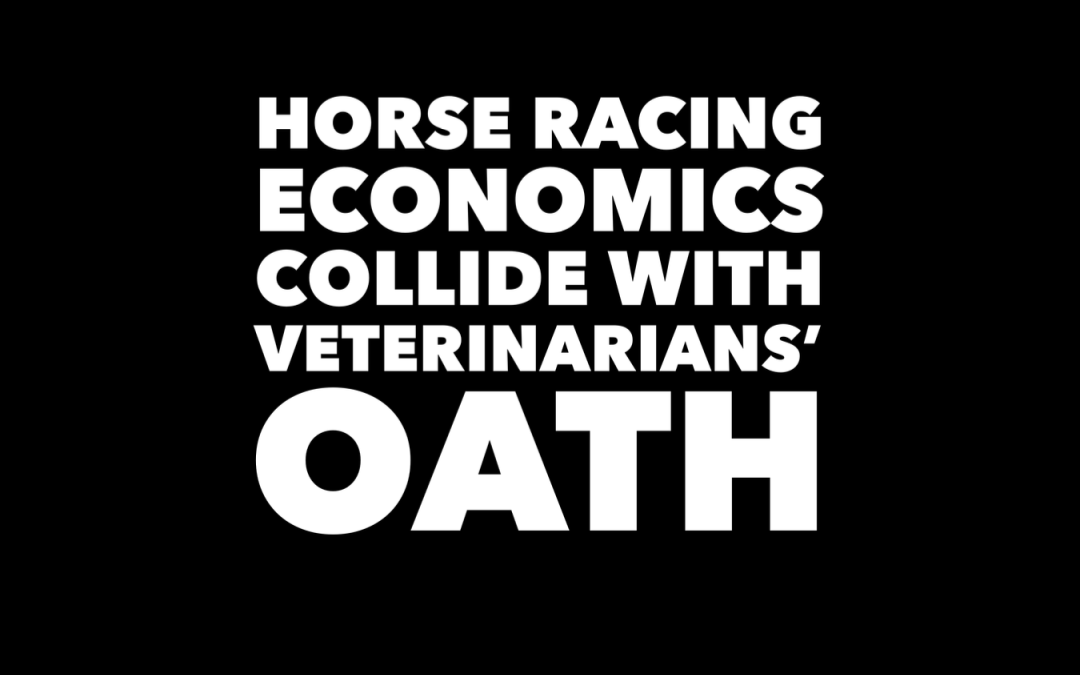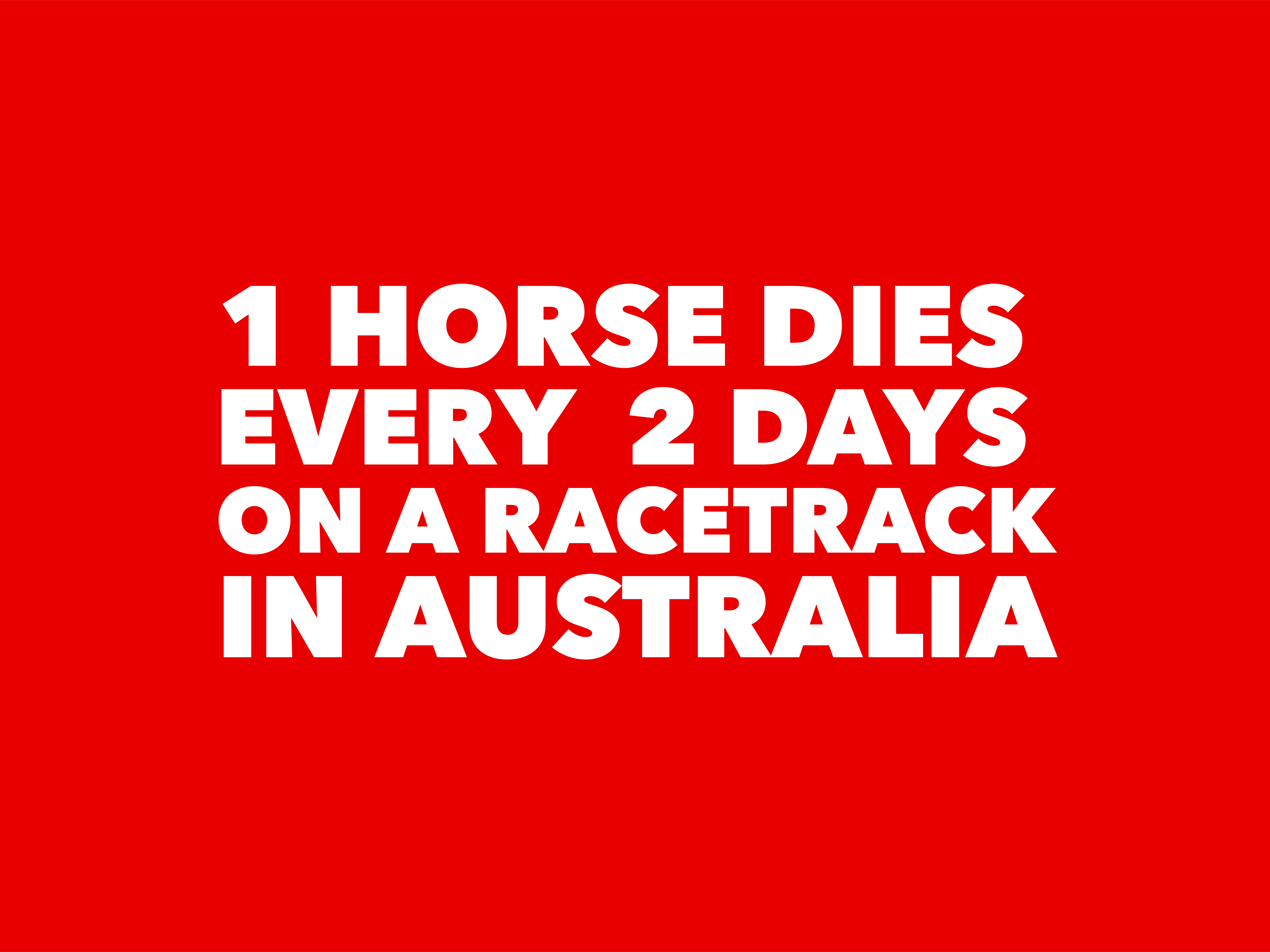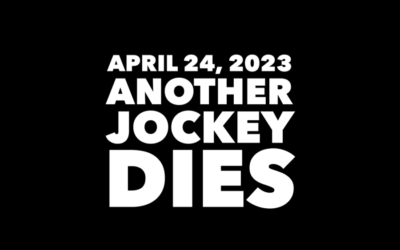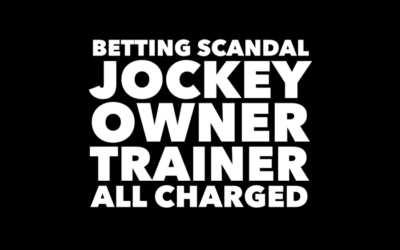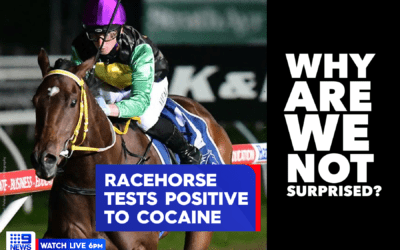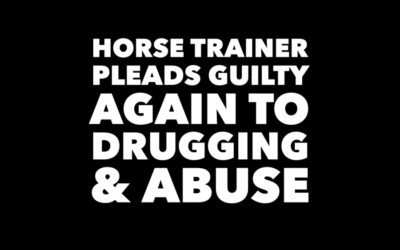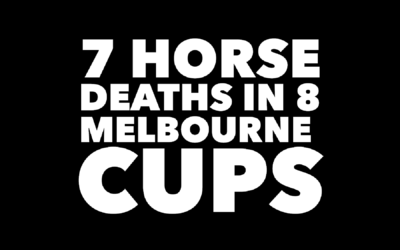HORSE RACING VETS ARE BOTH DOCTOR & DRUGSTORE
The New York Times ran a series of articles on horse racing in 2012. Sadly little has changed since then.
Today we’re featuring a summary of one of those articles.
The title: Racing Economics Collide With Veterinarians’ Oath.
Under the heading “DEATH AND DISARRAY AT AMERICA’S RACETRACKS”.
With the sub-title:
Horse-racing veterinarians are both doctor and drugstore; the more drugs they prescribe, the more money they make.
Although this article is specifically about horse racing in the United States, it stands to reason that similar practices take place in Australia.
THE HIDDEN DOPING CULTURE IN RACING
The use of prescription drugs in horse racing has sparked significant controversy, raising concerns about the ethical practices surrounding the treatment of racehorses.
Susan Kayne, the owner of Bourbon Bandit, only discovered the extent of medication her horse had been given after a serious injury. Veterinarians had regularly administered clenbuterol, a controversial drug meant for respiratory issues but often used to enhance performance by building muscle, akin to anabolic steroids.
Shocked, Kayne, like many other horse owners, realized that she had been left out of important decisions regarding her horse’s treatment and that the veterinarian involved may have been financially motivated to prescribe drugs.
This issue is widespread within the industry.
Veterinarians, who are supposed to prioritize animal welfare, often face pressure to keep horses racing at the cost of their long-term health.
Sadly, it is in the financial interest of vets to over-prescribe.
Trainers, focused on winning, often make decisions about medication, leaving veterinarians in a difficult position.
Again, the financial incentives are also clear: veterinarians who work with race horses earn most of their income from prescribing and administering drugs, unlike their counterparts treating small animals, whose income is derived from professional services like exams and surgery.
The issue extends to the regulatory framework of the sport.
While some trainers argue that prescription drugs can help horses recover and remain competitive, there’s a clear conflict of interest when drug regimens mask underlying injuries, leading to fatal breakdowns.
The alarmingly high number of deaths on and at American, Australian and other racetracks highlights the dangers of overmedication and its potentially deadly consequences.
While clenbuterol and other drugs like furosemide are legal when used appropriately, their widespread and often abusive use has become a growing concern.
Misuse of clenbuterol, for instance, can lead to severe health issues, and yet it remains a favoured drug for its muscle-building properties.
Some veterinarians, like Dr. Gregory L. Ferraro, have left the industry after growing disillusioned with this over-reliance on medications, which he believes is damaging the sport and endangering horses.
In contrast, regions like Hong Kong offer a more tightly regulated model, where veterinarians are directly employed by racing authorities and treatments must follow strict guidelines. This system – although far from perfect – limits the abuse of drugs like clenbuterol and again, while far from perfect – prioritizes the health of the horse over competition success.
As the debate rages on, many within the industry agree that change is needed.
Ethical concerns over the commodification of racehorses and the financial pressures that fuel the rampant overuse of prescription drugs underscore the need for tighter regulation and a shift in the industry’s approach to equine health.
Please join us in raising awareness about the dirty underbelly of racing and boycotting horse racing. Together we can make a difference.
ANOTHER JOCKEY DIES
THE FACT THAT WE CARE -- ACCORDING TO HORSE RACING "SPOKESPERSON" GAI WATERHOUSE -- MAKES US "WEAK & PRISSY"!"Accidents happen in any sport". "People have become so weak and prissy nowadays".FROM RACENET:From the article: Newmarket Handicap-winning jockey and...
BETTING AND HORSE WELFARE CHARGES LAID
IT'S HAPPENING YET AGAINOh, and we're wondering if sites and Facebook Groups set up to put a shiny spit polish on the horse racing industry's tarnished image are going to be covering this story. Likely not - right? #KickUpForRacing what do YOU think?BUT other...
BARBARIC TONGUE TIES RAMPANT
TARANAKI ANIMAL SAVE DOCUMENTS ABUSEPhotos this page courtesy of Taranaki Animal Save.March 24, 2023 Taranaki Animal Save posts: "When we bear witness at the races, we do so from outside the perimeter fence at the beginning of the 1200m and 1400m races. We are banned...
RACEHORSE TESTS POSITIVE FOR COCAINE
HORSERACING IS NOT A SPORTWe've said it before and we'll say it again, horse racing is not a sport. Sport implies that all participants are willing - and do so by their own free will. Horses do NOT have a choice in the matter. Horse racing is a spectacle of abuse -...
HORSE TRAINER DARREN WEIR PLEADS GUILTY AGAIN
MULTIPLE CHARGES AGAINST DARREN WEIR & GUILTY PLEASLet's start with a little history about horse trainer Darren Weir -- courtesy of RACENET. It includes everything from using banned and abusive "jiggers" on horses, to falsely identifying horses, to having horses...
BOYCOTT HORSE RACING
7 horses died in 8 Melbourne Cups. Do we need to say anymore? You can learn more about the horrors of the racing industry at: https://meetourhorsemeat.com/horse-racing-wastage/Join us on social media and become a keyboard warrior.

